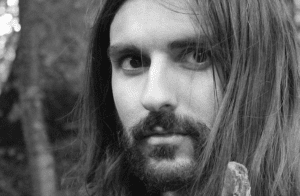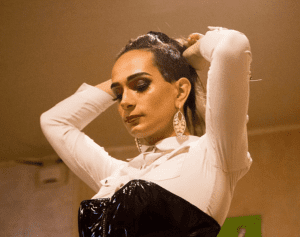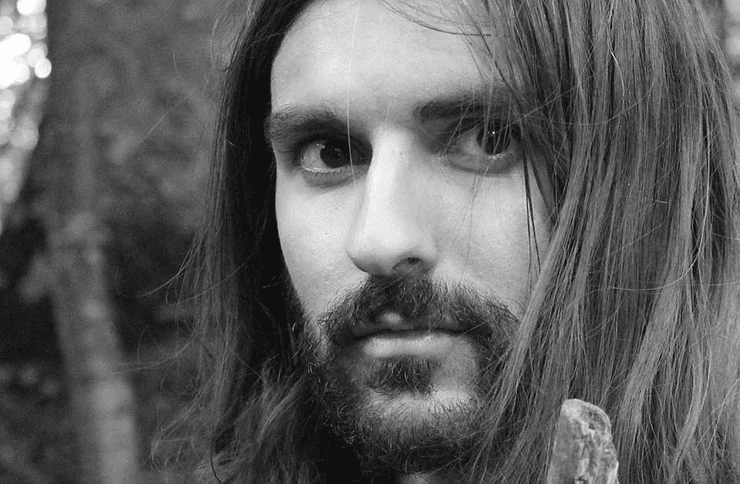SOGI / Sexual Orientation Gender Identity
LGBTQ+ people / lesbian, gay, bisexual, transgender and queer (or questioning) and others
When we talk about violence, we can come across different definitions. Violence can have various manifestations. The motives for several types of violence against LGBTQ+ people who are considered to be a minority in society, and the ways of manifestation of violence against them can be particularly different.
Nevertheless, what is violence? What are the types of violence? What are the reasons for violence? Are the motives for violence actually different in case of LGBTQ+ people?
Modern psychological sciences link the word “violence” to the word “aggression” (Latin: agressio – attack). The latter is defined as conscious or subconscious violent or oppressive action which is intended to cause harm. Violence in its turn is described as an action that is deliberately aggressive, is characterized with physical force or threats to apply force, power or threats to employ power, against an individual, group of individuals or society. Both aggression and violence, nevertheless, lead to psychological and physical mild or severe consequences and even, death.
When talking about manifestations of violence it is important to single out the types of violence based on economic, physical, psychological and cultural factors. Several LGBTQ+ representatives periodically mention during their interviews that violence against them is more frequent. They claim that they face physical and psychological violence more often than economic violence. It is noteworthy that LGBTQ+ people, without any exceptions, are more likely to be subjected to violence based on physical, psychological, economic and cultural factors, than heterosexual individuals or those who express themselves as heteronormatively female or male.
LGBTQ+ representative Arabo Sargsyan who left Armenia two years ago says that he has seen and experienced all kinds of violence. He was repeatedly attacked, threatened and humiliated. His father kept him locked up in the basement for days depriving him of liberty.

“You’ve come to the right person. I have been subjected to violence many times and I have hundreds of such examples to tell. I have been subjected to all kinds of violence, without exception,” says Arabo Sargsyan. Then he adds, “At school my classmates would undress me to see if I was a boy or a girl. I was regularly and continuously subjected to violence. I remember I was once on a public transport. A guy got off after me at the bus stop, he followed me and then he beat me until I bled terribly. I fainted. When I woke up I ran home. My clothes used to always be in blood when I went home. My appearance, my long hair, and my clothes triggered violence. In addition, I was subjected to domestic violence by my father. My father kept me locked up in the basement of our building for days. I ate very poorly. As a result, I developed mental problems due to years of being subjected to violence.
“I remember how four guys threw me to the ground in the bathroom of the university. The bathroom floor was dirty. They threw me in the wastes and they wanted to rape me. They wanted to “break” me. Then they beat me and they left”, with pain remembers Arabo and then he adds that he used to wear long sleeved clothes because he always had bruises on his arms.
Nora Petrosyan who identifies as transgender says,
“When my parents learnt about my sexual orientation and gender identity, they got angry and they decided that I should be locked up in house. For about a year I was locked up in home. My parents would repeatedly beat me to “make a man out of me”. They are followers of Jehova’s witnesses’ religious movement. They thought that evil spirits had entered me – the spirits of twelve devils – who were the cause of my transgender identity. My parents would call their elders and they would perform rituals for me to recover”.

We had a peaceful family and we never argued. My parents were respectful towards each other. However, I was the only one in the family who used to be subjected to violence. I was an only child and because of that they could not let their only son to have transgender identity”.
Upon becoming an adult Nora ran away from home and with the help of her friends she was able to get free.
Attempting to understand to what extent LGBTQ+ people are protected on legal level we spoke with Maxim Trubkin, the chairperson of For Strong Future NGO. Maxim mentioned that when transgender people go to the police when they have been subjected to violence they hardly receive any help.
“You know well that almost all the cases involving transgender people are being dismissed”. Maxim mentions the case of Jacklin who is transgender. Some people beat Jacklin and burnt Jacklin’s house afterwards. The case is still under investigation. “In general all cases concerning LGBTQ+ people, including criminal cases, are either being dismissed or are not even investigated”, says Maxim referring to their Facebook page where they have repeatedly raised their concerns about violence.
Arman (he wanted to keep his last name private) who identifies as homosexual says,
“My brother has beaten me twice. The reason was my sexual orientation. When he first beat me I nearly fainted and I asked my mother to bring me some water. My father forbade her to give me water saying that someone like me does not deserve it. My mother was even afraid of my brother. That time I left home and I stayed at my friend’s for four days. I returned home when my brother’s military leave was over and he had returned to the military unit. I did not feel safe with him under one roof. For the second time my brother beat me when he took my phone and saw my correspondence with my boyfriend. He hit me so hard on the head that up to this day I am still recovering from the consequences.”
From interviews with several LGBTQ+ people the following cases are particularly worth mentioning.
“My brother shot the dog in the head in front of me and said, ‘See that? You will either change or have the same fate’.”
“My father used to mix the remains of the burning wood with salt, pour that on the floor, and make me kneel on it. And I had to stay like that. Wounds that appeared were not healing for a long time. My brother and father used to beat me every day. It did not matter whether I did something or not: their bad mood was enough for me to be subjected to violence.”
Lilit Avetisyan, the chairperson of PINK Armenia NGO answers a couple of questions on motives for violence against LGBTQ+, on whether individuals with different SOGI are subjected to different types of violence and so on:
“Causes for violence are different, based on in what area of life it is happening. In general we can mention a couple of observations. First, there is general atmosphere and culture of violence in the country. In other words, violence is a “norm” and any person, behavior, appearance, feature that is outside the established standards, becomes an object of attention and pressure. In case of LGBT+ people the pattern is the same and even doubled because of violating two standards – the taboo of speaking about sexuality and speaking about “non-standard” sexuality. The second important observation is the polarization of society into “us” and “them” by different forces. And LGBT+ people are always put into “them”. Those forces are multi-layered: those who have the power or are striving towards power – domestic political or religious forces, and foreign political and religious forces. And third, there are educational gaps and lack of awareness. The educational factor is the most important one: people do not develop critical or analytical thinking, from kindergarten to university to academic studies. As a result, any misinformation, including those on sexuality and LGBT+ issues, is swallowed unquestioningly without any analysis.
I have already mentioned that culture of violence is rooted in our society․ It manifests itself with different specifications towards people of different LGBT+ subgroups. Transgender people are the most vulnerable in public places. The word “trans” here also implies all non-binary or so perceived people (since in the perceptions of society there is no separation of subgroups) who are being subjected to ridicule, humiliation, pressure and physical assault. In case of gay and bisexual men this issue is mainly manifestation of various acts of violence in army or in penitentiaries, as well as blackmail and extortion cases with the threat to reveal their sexual orientation. In case of lesbian, bisexual, queer women the issue is more disguised and it goes in parallel with the context of violence against women, including sexual harassment and rape. A separate widespread trend is domestic violence: physical, psychological, economic, etc. When they learn about person’s SOGI, domestic violence becomes a way to change it. This is common to all. LGBT+ minors are particularly vulnerable to domestic violence, as they have no means of protection and they depend on their families.
Pink alone annually records about 30 offences against LGBT+ people. This year is an exception: we have already recorded so many cases, although just half a year has passed. This means the number will unfortunately increase by the end of the year. One has to realize that this is simply the tip of the iceberg since our NGO cannot record all the cases happening all over the country. The number is most likely bigger. I should mention here that about half of those each year constitutes the cases of domestic violence. In regard to law enforcement bodies, generally the cases that caused public outcry or those that happened in public places are being investigated. Moreover, most of the cases are being dismissed because of legislative gaps and the remaining small percentage passes through domestic instances and finally gets to the international court. In other cases, people either refuse to pursue with the case or withdraw it halfway. The reasons are different: they are either afraid that their SOGI will be revealed (e.g. being afraid of coming out to other people), or they do not trust law enforcement bodies, or they do not want to file a case against offender because the latter is, for instance, their family member. The latter is characteristic to domestic violence case. To mention, no domestic violence cases have been proceeded with: most of them do not apply to the police and those who apply withdraw the complaint for one of the reasons mentioned above.”
As Lilit Avetisyan notes, violence is rooted in society and it has become a norm. Referring to the RA Constitution, we can claim that we do not have an antidiscrimination law, and the Article 29 on of the RA Constitution reads:
“Discrimination based on sex, race, skin colour, ethnic or social origin, … , birth, disability, age, or other personal or social circumstances shall be prohibited.”
The antidiscrimination article in the Constitution does not provide for prohibition of discrimination based on Sexual orientation and Gender identity. Meanwhile, LGBTQ + people are subjected to violence in all spheres of life.
On the other hand, Article 30 of the RA Constitution is on the Legal Equality of Women and Men. It states that women and men are equal before the law. Yet LGBTQ+ people who identify as woman or man have been subjected to violence multiple times and inequality manifests itself in different spheres of life.
Finally, let’s quote some articles of the RA Criminal Code.
———
Article 110: Causing somebody to commit suicide (imprisonment for the term of up to 5 years),
Article 113: Infliction of willful medium-gravity damage to health/
Article 112: Infliction of willful heavy damage to health (imprisonment for the term of 5 to 10 years),
Article 118: Battery (a fine in the amount of up to 100 minimal salaries, or correctional labor for up to 1 year, or with arrest for the term of up to 2 months),
Article 138: Rape (imprisonment for the term of up to 8 to 15 years)
․․․․․․․․․․․
Author | Artak Adam
Translation from Armenian into English | Lusine Marutyan.
#DiverCityNGO #ԲազմազանությունՀԿ #ДайверСитиНПО #Diversity #Բազմազանություն #Разнообразие #LGBT #HumanRights #LGBTRights #DCNGO
![]()



